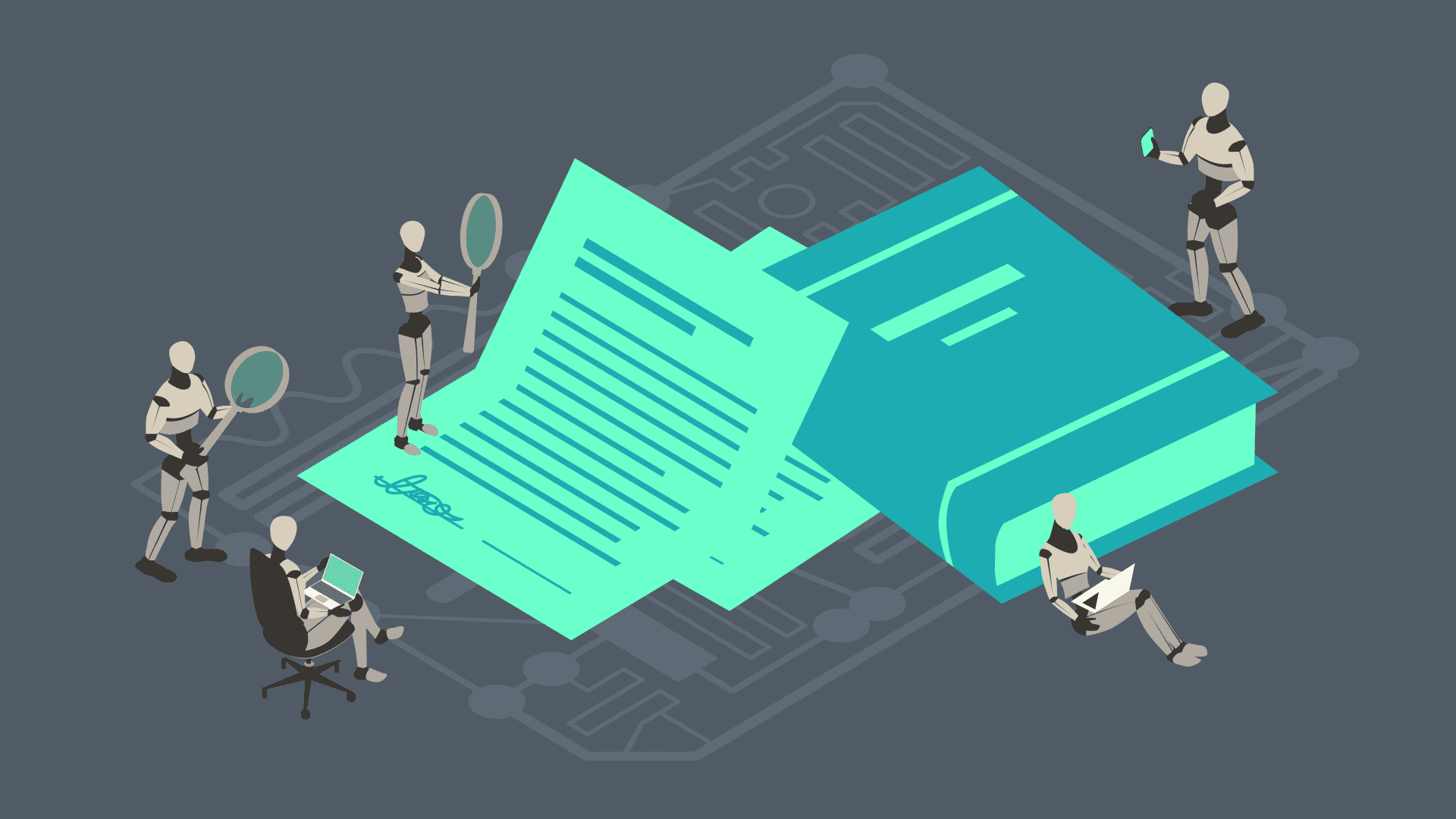Duolingo's AI Replacement Of Contract Workers: Implications And Analysis

Table of Contents
Duolingo, the popular language-learning app, recently announced a significant shift in its operations, replacing some contract workers with AI. This move has sparked considerable debate, raising crucial questions about the future of work in the gig economy, the ethical implications of AI-driven automation, and the potential impact on both Duolingo's business model and the livelihoods of affected individuals. This article delves into the multifaceted implications of Duolingo's decision, analyzing its impact across various sectors.
The Business Case for AI-Driven Automation at Duolingo
Cost Reduction and Efficiency Gains
Replacing human labor with AI can significantly reduce operational costs for Duolingo. The cost of employing and managing contract workers, including payments, benefits (where applicable), and administrative overhead, is substantial. AI, on the other hand, represents a one-time investment in development and ongoing maintenance costs that are often significantly lower in the long run.
- Reduced labor costs: AI can automate tasks previously performed by numerous contract workers, leading to substantial savings.
- Increased speed and accuracy: AI can process and analyze vast amounts of user data—feedback, learning progress, course completion rates—more quickly and efficiently than humans, leading to improved speed and accuracy in tasks like content moderation and feedback generation. This translates directly into a better user experience.
- 24/7 availability: Unlike human workers, AI can operate continuously, providing 24/7 access to services and support, enhancing user engagement and satisfaction. This continuous operation boosts user retention and potentially attracts new users.
Enhanced Scalability and Growth Potential
AI allows Duolingo to scale its operations more effectively than relying solely on a human workforce. Expanding into new languages and markets becomes significantly easier and faster.
- Faster expansion: Developing new language courses and features requires considerable human effort. AI can automate aspects of this process, accelerating the development cycle and allowing Duolingo to reach new markets more quickly.
- Personalized learning: AI enables personalized learning experiences tailored to individual user needs and learning styles. This personalized approach enhances engagement and improves learning outcomes, attracting and retaining users.
- Improved efficiency: AI algorithms can optimize the learning process, identifying areas where users struggle and adapting the curriculum accordingly. This efficiency translates to better learning results for users and improved ROI for Duolingo.
Ethical and Social Implications of AI-Driven Workforce Changes
Job Displacement and the Gig Economy
The replacement of contract workers with AI raises serious ethical concerns regarding job security and the impact on the livelihoods of affected individuals. The gig economy, characterized by its temporary and often precarious nature, is particularly vulnerable to AI-driven automation.
- Job losses: Duolingo's decision directly resulted in job losses for contract workers, highlighting the potential for widespread job displacement as AI becomes more sophisticated.
- Economic insecurity: Contract workers often lack the benefits and protections afforded to traditional employees, making them more susceptible to the negative economic impacts of automation.
- Need for retraining: To mitigate the negative effects of AI-driven job displacement, investment in retraining and reskilling programs is crucial to help displaced workers transition to new roles in the evolving job market. This is a responsibility that extends beyond Duolingo and requires societal investment.
Algorithmic Bias and Fairness
AI systems are trained on data, and biases present in that data can lead to unfair or discriminatory outcomes. In the context of language learning, this can manifest in several ways.
- Bias in feedback: AI-powered feedback mechanisms could inadvertently reinforce existing societal biases, potentially disadvantaging users from certain backgrounds or linguistic groups.
- Unequal access: AI-driven personalization could inadvertently create disparities in access to quality education, potentially exacerbating existing inequalities.
- Transparency and accountability: To address these concerns, transparency in algorithm design and deployment is critical, allowing for scrutiny and accountability.
The Future of Work in the Language Learning Industry and Beyond
The Evolving Role of Humans in AI-Augmented Workplaces
AI is unlikely to completely replace human workers; rather, it will augment their capabilities. While some tasks will be automated, human expertise will remain vital.
- New job roles: The development, maintenance, and oversight of AI systems will create new job roles requiring specialized skills.
- Human expertise: Human skills in creativity, critical thinking, and emotional intelligence remain irreplaceable, particularly in areas requiring nuanced judgment and human interaction.
- Collaboration: The most effective approach will involve a collaborative relationship between humans and AI, where AI handles routine tasks, freeing up humans to focus on complex and creative endeavors.
The Need for Responsible AI Development and Deployment
To maximize the benefits of AI while mitigating its risks, responsible development and deployment are paramount.
- Transparency and accountability: Companies should be transparent about their AI systems' design, data sources, and decision-making processes.
- Ethical guidelines and regulations: The development of clear ethical guidelines and regulations is crucial to ensure AI is used responsibly and ethically.
- Stakeholder engagement: Ongoing dialogue between stakeholders—workers, policymakers, technology developers, and users—is essential to address the challenges and opportunities presented by AI.
Conclusion:
Duolingo's decision to replace some contract workers with AI highlights the complex and evolving relationship between technology, automation, and the future of work. While AI offers significant benefits in terms of cost reduction, efficiency gains, and scalability, it is crucial to address the ethical and social implications of this technological shift. Responsible AI development, coupled with robust support for displaced workers, will be essential in navigating the challenges and maximizing the opportunities presented by AI-driven automation in the language learning industry and beyond. Understanding the implications of Duolingo's AI replacement strategy is crucial for navigating the future of work, especially in the rapidly evolving landscape of AI and the gig economy. Learn more about the impact of AI on the future of work and how businesses are adapting to this transformative technology.

Featured Posts
-
 Verdict Reached In Chris Kaba Police Shooting Case
May 01, 2025
Verdict Reached In Chris Kaba Police Shooting Case
May 01, 2025 -
 Gillian Anderson And David Duchovnys Sag Awards Reunion
May 01, 2025
Gillian Anderson And David Duchovnys Sag Awards Reunion
May 01, 2025 -
 Cleveland Guardians Defeat New York Yankees Bibees First Pitch Test
May 01, 2025
Cleveland Guardians Defeat New York Yankees Bibees First Pitch Test
May 01, 2025 -
 Trumps Decision To Fire Doug Emhoff From Holocaust Council
May 01, 2025
Trumps Decision To Fire Doug Emhoff From Holocaust Council
May 01, 2025 -
 Four Dead Including Children In After School Camp Car Crash
May 01, 2025
Four Dead Including Children In After School Camp Car Crash
May 01, 2025
